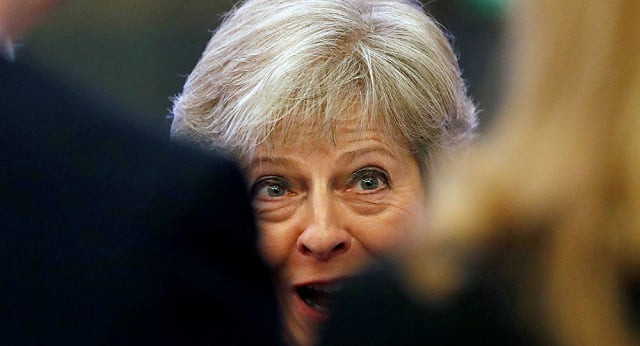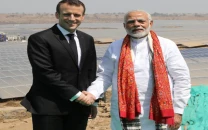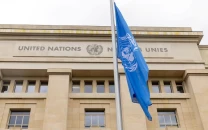Hoping to win Brexit support, PM May says world leaders ready for trade
May is facing an uphill struggle to get lawmakers to back her deal

May is facing an uphill struggle to get lawmakers to back her deal
PHOTO COURTESY: SPUTNIK INTERNATIONAL
May is facing an uphill struggle to get lawmakers to back her deal to keep close economic ties with the bloc, which she agreed with the EU in November.
The main opposition Labour Party says it will seek a vote of no confidence in the government if May loses the vote. The pact has been criticised within May's own party, both by supporters of a cleaner break with the EU and by opponents of Brexit.
No better Brexit deal available, EU ministers tell Britain
A Northern Irish party which props up her minority government has said it will vote against it. After visiting Argentina for a G20 summit, May will say her meetings with leaders showed that several countries were ready to negotiate trade deals "as soon as possible".
Swift new trade deals are a major demand for Brexit campaigners. "Once we leave the EU, we can and we will strike ambitious trade deals," May will tell parliament, according to excerpts of her speech.
"For the first time in more than 40 years we will have an independent trade policy, and we will continue to be a passionate advocate for the benefits open economies and free markets can bring."
She will say that she had meetings with leaders keen to strike trade deals, including the hosts Argentina, Australia, Chile and Japan. With Japan, Britain wants to work quickly to set up a new arrangement based on Japan's existing partnership agreement with the EU, she will say.
The government says that if May's deal is voted down there is a risk Britain will exit the EU with no agreement at all, with serious potential economic consequences. Some opponents of Brexit have campaigned for a new referendum giving voters the option to reverse Britain's 2016 vote to leave the bloc, although the government says no such new vote will be held.
Labour Party said on Sunday it would press for contempt proceedings
against the government if Prime Minister Theresa May fails to
produce the full legal advice she has received on her Brexit
deal.
Trump warns Brexit may harm UK-US trade
UK's foreign minister Boris Johnson who quit his role in protest at May's Brexit strategy, wrote in an article for the Telegraph that the advice would show that a so-called backstop arrangement for Northern Ireland was "a great steel trap that is about to clamp
its jaws around our hind limbs and prevent our escape".
"Yes, of course the public is entitled to see the legal advice from the attorney general to the prime minister," he wrote.
"It is outrageous that the public should be prevented from knowing the full legal implications of this appalling deal - when it is their rights, their freedoms, their hard-won suffrage, that are about to be bartered away."
May is battling to prevent an exit deal that she has
painstakingly negotiated with the European Union being voted
down in parliament on December 11.



















COMMENTS
Comments are moderated and generally will be posted if they are on-topic and not abusive.
For more information, please see our Comments FAQ